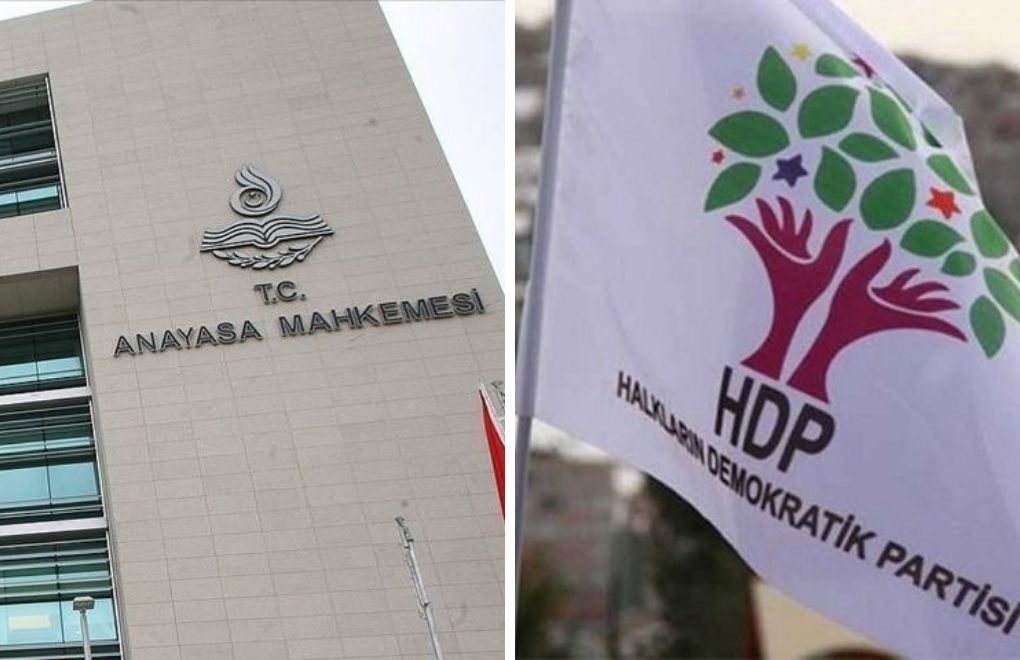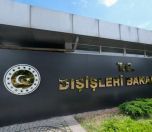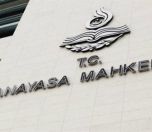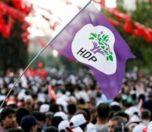Click to read the article in Turkish
Constitutional Court President Zühtü Arslan has assigned a rapporteur to examine the case filed for the closure of the Peoples' Democratic Party (HDP).
The chief public prosecutor of the Court of Cassation on Wednesday (March 17) submitted an indictment seeking the closure of the party because of its alleged involvement in "terror" activities to the top court.
The rapporteur has to complete the report regarding the initial examination and submit it to the top court, which will then make its initial examination and decide whether the indictment will be accepted or not. This process should not take more than 15 days according to the Criminal Procedure Code.
CLICK - HDP indictment seeks political ban for 687 members, including co-leaders
CLICK - History of political party closures in Turkey
If the indictment is accepted, it will be sent to the HDP for its preliminary defense within the period determined by the Constitutional Court. It can apply for the extension of the period.
After the submission of the preliminary defense, the chief public prosecutor of the Court of Cassation, Bekir Şahin, will submit his opinion as to the accusations.
On the dates determined by the Constitutional Court, Şahin will make a verbal statement and the HDP will make a verbal defense statement.
The rapporteur then will collect the information and documents related to the case and will prepare a report on the merits. The HDP and the Court of Cassation Chief Public Prosecutor's Office can submit additional evidence and defense statements while this process is underway.
After the report is sent to the Constitutional Court members, President Arslan will determine a day meeting, where the court members will start discussing the case on the merits.
How can the party be closed?
A two-thirds majority, or votes of the 10 of 15 top court members, are needed to close the party because of the reasons cited in article 69 of the Constitution or impose other sanctions on the party such as partially or completely depriving it of public aid.
The top court decision will be submitted to the Court of Cassation Chief Public Prosecutor's Office and the relevant political party and will be published in the Official Gazette.
Those who have been imposed a political ban will not be able to be founders, members, executives or supervisors of any other political party for five years.
Article 69 of the Constitution - Principles to be observed by political partiesThe activities, internal regulations and operation of political parties shall be in line with democratic principles. The application of these principles is regulated by law. Political parties shall not engage in commercial activities. The application of this rule is regulated by law. The auditing of acquisitions, revenue and expenditure of political parties by the Constitutional Court in terms of conformity to law as well as the methods of audit and sanctions to be applied in case of inconformity to law shall be indicated in law. The Constitutional Court shall be assisted by the Court of Accounts in performing its task of auditing. The judgments rendered by the Constitutional Court because of the auditing shall be final. The dissolution of political parties shall be decided finally by the Constitutional Court after the filing of a suit by the office of the Chief Public Prosecutor of the Court of Cassation. The permanent dissolution of a political party shall be decided when it is established that the statute and program of the political party violate the provisions of the fourth paragraph of Article 68. The decision to dissolve a political party permanently owing to activities violating the provisions of the fourth paragraph of Article 68 may be rendered only when the Constitutional Court determines that the party in question has become a center for the execution of such activities. (Sentence added on October 3, 2001; Act No. 4709) A political party shall be deemed to become the center of such actions only when such actions are carried out intensively by the members of that party or the situation is shared implicitly or explicitly by the grand congress, general chairpersonship or the central decision-making or administrative organs of that party or by the group's general meeting or group executive board at the Grand National Assembly of Turkey or when these activities are carried out in determination by the abovementioned party organs directly. (Paragraph added on October 3, 2001; Act No. 4709) Instead of dissolving it permanently in accordance with the above-mentioned paragraphs, the Constitutional Court may rule the concerned party to be deprived of state aid wholly or in part with respect to intensity of the actions brought before the court. A party which has been dissolved permanently shall not be founded under another name. The members, including the founders of a political party whose acts or statements have caused the party to be dissolved permanently shall not be founders, members, directors or supervisors in any other party for a period of five years from the date of publication of the Constitutional Court's final decision with its justification for permanently dissolving the party in the Official Gazette. Political parties that accept aid from foreign states, international institutions and persons and corporate bodies of non-Turkish nationality shall be dissolved permanently. (As amended on October 3, 2001; Act No. 4709) The foundation and activities of political parties, their supervision and dissolution, or their deprival of state aid wholly or in part as well as the election expenditures and procedures of the political parties and candidates, are regulated by law in accordance with the above-mentioned principles. |
(AÖ/VK)









-132.jpg)


sa.jpg)

